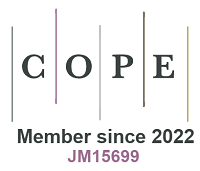Key factors for enhancing catalyst performance and stability in LOHC hydrogenation and dehydrogenation: synergistic optimization of active components, metal-support effect, and promoters
Abstract
The Liquid Organic Hydrogen Carrier (LOHC) technology, as an important solution for hydrogen storage and transportation, has attracted widespread attention due to its high energy density and chemical stability. However, during the dehydrogenation and hydrogenation cycles of LOHC, catalysts still face numerous challenges, including catalyst deactivation, decreased reaction efficiency, and shortened service life. These factors severely limit its application performance and economic viability. To address these issues, improving the structure and performance of catalysts to enhance their stability is particularly important. Optimizing the active components of catalysts, strengthening the interaction between metals and support, and introducing synergistic promoters have become effective methods to improve catalyst performance and extend service life. This review summarizes the major research advances in improving catalyst performance and stability in the LOHC dehydrogenation and hydrogenation processes in recent years, covering catalyst design optimization, the development of new catalytic materials, and the regulation of catalyst surface properties. By thoroughly discussing the advantages and challenges of different catalyst systems, this paper provides theoretical support for further improving catalyst performance. Future research will focus on the multi-component synergistic effects within catalysts, aiming to maximize the efficiency and stability of catalytic reactions through the fine-tuning of interactions between active components, metal-support, and additives, laying a technological foundation for the commercialization and sustainable development of LOHC technology and the hydrogen energy industry.
Keywords
LOHC technology, catalyst performance and stability, active components, metal-support interactions effect, synergistic promoters
Cite This Article
Ma Z, Yang Y, Song Z, Zhou W, Gao X, Mei X, Liu J, Yao S. Key factors for enhancing catalyst performance and stability in LOHC hydrogenation and dehydrogenation: synergistic optimization of active components, metal-support effect, and promoters. Chem Synth 2025;5:[Accept]. http://dx.doi.org/10.20517/cs.2025.72












